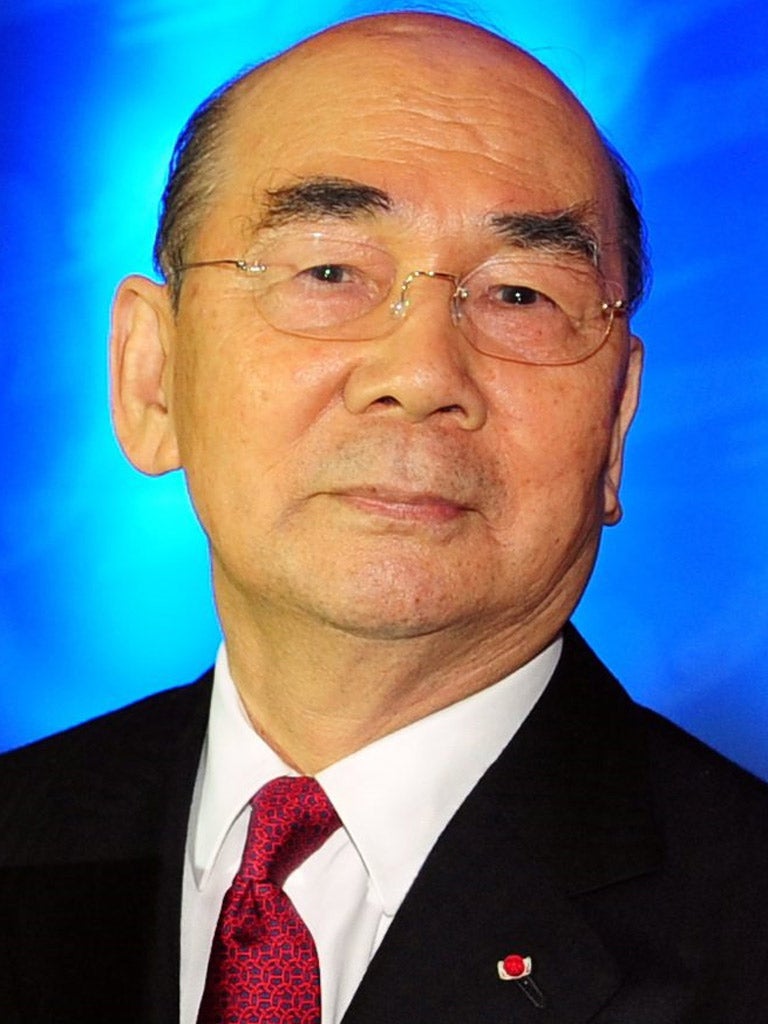Park Tae-Joon: Steel magnate who transformed South Korean fortunes

Your support helps us to tell the story
From reproductive rights to climate change to Big Tech, The Independent is on the ground when the story is developing. Whether it's investigating the financials of Elon Musk's pro-Trump PAC or producing our latest documentary, 'The A Word', which shines a light on the American women fighting for reproductive rights, we know how important it is to parse out the facts from the messaging.
At such a critical moment in US history, we need reporters on the ground. Your donation allows us to keep sending journalists to speak to both sides of the story.
The Independent is trusted by Americans across the entire political spectrum. And unlike many other quality news outlets, we choose not to lock Americans out of our reporting and analysis with paywalls. We believe quality journalism should be available to everyone, paid for by those who can afford it.
Your support makes all the difference.Park Tae-joon was a pioneering businessman who founded one of the world's biggest steel companies. In the process he helped transform South Korea, devastated by the war of the early 1950s, into an industrial powerhouse.
He was born in a rural village in the South Gyeongsang Province in south-eastern Korea in 1927. Six years later his family crossed the East Sea and moved to Japan. Park attended the prestigious Waseda University in Tokyo, majoring in mechanical engineering. His studies, however, were interrupted when Korea gained independence from Japanese rule in 1945; he returned home a year later.
Upon his return, Park attended military academy, where he met Park Chung-hee, then a captain. They remained friends and survived the Korean War of 1950-53. In 1961 Park Chung-hee, then a General, seized power in a military coup, although Park was not officially involved. In 1964, Park was chosen to head the Korea Tungsten Co, which is now the Warren Buffet-owned TaeguTec.
During the 1960s, Park Chung-hee's administration concluded that self-sufficiency in steel and the construction of an integrated steelworks were essential for successful economic development. So in 1968 he asked Park Tae-joon to set-up the POSCO steel firm. With South Korea not having previously possessed a modern steel plant, many foreign and domestic businesses expressed reservations about the administration's decision to invest so heavily in developing its own industry.
Despite the scepticism, Park spearheaded the first phase of the construction, which began in 1970. For the first of what eventually would become a complex of factories, Park selected a site on the coast of Pohang, a port in south-eastern South Korea. With the economy still faltering and rejections coming from international lenders, Park successfully lobbied officials in his government and Japan, who had occupied Korea for 36 years, to allocate about $500m in Japanese reparations to finance the company.
Finance in place, the project was completed ahead of schedule in June 1973, with Park working tirelessly and encouraging employees to advance the deadlines. Thus financed, Park built fully integrated steel mills with blast furnaces to make iron, oxygen converters to refine it into steel and casters to form flat-roll steel and steel plates that could be used in an array of products.
The first-phase facilities began to turn a profit within six months of full operations, which convinced Park to work on the second and third phases of construction, laying a solid foundation for POSCO's take-off on the global stage. Steel production helped the country's rapid industrialisation from the ashes of the Korean War and contributed decisively to the growth of its manufacturing sector.
Park's tenure, largely regarded aspioneering, ended after 25 years in 1993, when he was forced to resign under pressure from President Kim Young-sam. He was later accused of bribery and fled to Japan until cleared of the allegations. By 1998, according to World Steel, the industry's global tradeassociation, Posco was ranked No 1 internationally, producing 25.6 million metric tons. In 2010, it was third behind the Indian global company, ArcelorMittal, and Baosteel, China's state-owned company. POSCO is now backed by Warren Buffett.
Park, seen as a figurehead for the country's economic growth drives and industrialisation, entered the political arena by winning a parliamentary seat in 1981. He served four terms, and headed the ruling Democratic Justice Party in 1988, becoming a member of the Supreme Council for the Democratic Liberal Party in 1990, both of which were predecessors to the current Grand National Party.
Park also led the now-defunctUnited Liberal Democrats in 1997 and helped former President Kim Dae-jung win the presidential election the same year. In 2000, Park served as prime minister, but resigned after four months following a property scandal. He returned to POSCO as honorary chairman in 2002. Park died of complications from lung disease.
Martin Childs
Park Tae-joon, businessman and politician; born South Gyeongsang Province, Korea 29 September, 1927; married Chang Ok-ja (five children); died Seoul, South Korea 13 December 2011.
Join our commenting forum
Join thought-provoking conversations, follow other Independent readers and see their replies
Comments